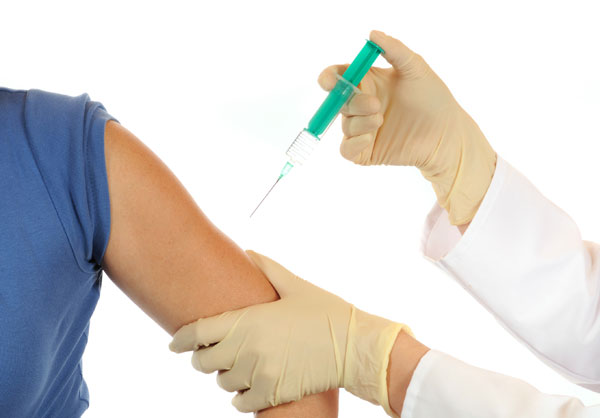Rare Case: Woman Dies After Yellow-Fever Vaccine

Get the world’s most fascinating discoveries delivered straight to your inbox.
You are now subscribed
Your newsletter sign-up was successful
Want to add more newsletters?

Delivered Daily
Daily Newsletter
Sign up for the latest discoveries, groundbreaking research and fascinating breakthroughs that impact you and the wider world direct to your inbox.

Once a week
Life's Little Mysteries
Feed your curiosity with an exclusive mystery every week, solved with science and delivered direct to your inbox before it's seen anywhere else.

Once a week
How It Works
Sign up to our free science & technology newsletter for your weekly fix of fascinating articles, quick quizzes, amazing images, and more

Delivered daily
Space.com Newsletter
Breaking space news, the latest updates on rocket launches, skywatching events and more!

Once a month
Watch This Space
Sign up to our monthly entertainment newsletter to keep up with all our coverage of the latest sci-fi and space movies, tv shows, games and books.

Once a week
Night Sky This Week
Discover this week's must-see night sky events, moon phases, and stunning astrophotos. Sign up for our skywatching newsletter and explore the universe with us!
Join the club
Get full access to premium articles, exclusive features and a growing list of member rewards.
A woman in Oregon who received the yellow fever vaccine developed a rare and ultimately fatal reaction to the shot, according to a new report of the case.
The woman, who was in her 60s, was previously healthy and received the yellow fever vaccine before a trip she was planning to take to South America, according to the report from the Centers for Disease Control and Prevention. But six days after receiving the shot, she went to the emergency room with vomiting, diarrhea and shortness of breath.
Ten hours after she was admitted to the hospital, her condition worsened, and she was put on a ventilator. She developed heart damage and kidney failure, and died after three days in the hospital, according to the report.
An autopsy revealed that the woman had a tumor in her thymus (an organ found near the heart and that is part of the body's immune system), which had not been diagnosed before her death. That tumor may have played a role in her severe reaction. She also had yellow fever virus genetic material in multiple organs, and in her blood.
Doctors determined that the woman died from a condition called yellow fever vaccine-associated viscerotropic disease (YEL-AVD), which is a serious reaction to the yellow fever vaccine in which the virus replicates out of control. The reaction is very rare: For every 1 million doses of the vaccine that are distributed, there are about four cases of YEL-AVD, the CDC says. [5 Viruses That Are Scarier Than Ebola]
People are at greater risk for the reaction if they are ages 60 or older, or have a disease of the thymus. If the woman's thymus cancer had been caught before her vaccination, she would not have been recommended to receive the yellow fever vaccine, the CDC said. (About one-third of thymus tumors, or thymomas, are diagnosed in people who do not have symptoms from the tumors.)
Still, there is no recommendation to screen for diseases of the thymus before yellow fever vaccination. (Thymomas are also very rare, with about 13 cases per 1 million people per year in the United States.)
Get the world’s most fascinating discoveries delivered straight to your inbox.
Yellow fever virus is spread by mosquitoes, and occurs in tropical areas of South America and Africa, according to the CDC. The diseases' symptoms can range from a mild fever to severe liver disease that is fatal in 20 to 50 percent of cases. Yellow fever vaccination is recommended for people living in or traveling to tropical South American or sub-Saharan Africa.
"Although most persons have no or mild adverse events after yellow fever vaccination, the benefits of vaccination among travelers who have a limited exposure period need to be weighed against risk for adverse events," the researchers wrote in the CDC's Morbidity and Mortality Weekly Report.
The risks of a getting a vaccine are usually weighed the risks of getting the disease the vaccine prevents. In the case of yellow fever, the CDC notes that during a certain time period, five people developed severe reactions to the vaccine, but there were also four unvaccinated travelers who died after contracting yellow fever.
"When determining whether a patient should receive yellow fever vaccine, the patient and clinician should discuss the risk for travel-associated yellow fever disease as indicated by season, destinations and duration of travel, likelihood of exposure to mosquitoes while traveling, and vaccination status," the researchers said.
Follow Rachael Rettner @RachaelRettner. Follow Live Science @livescience, Facebook & Google+. Original article on Live Science.

Rachael is a Live Science contributor, and was a former channel editor and senior writer for Live Science between 2010 and 2022. She has a master's degree in journalism from New York University's Science, Health and Environmental Reporting Program. She also holds a B.S. in molecular biology and an M.S. in biology from the University of California, San Diego. Her work has appeared in Scienceline, The Washington Post and Scientific American.
 Live Science Plus
Live Science Plus










